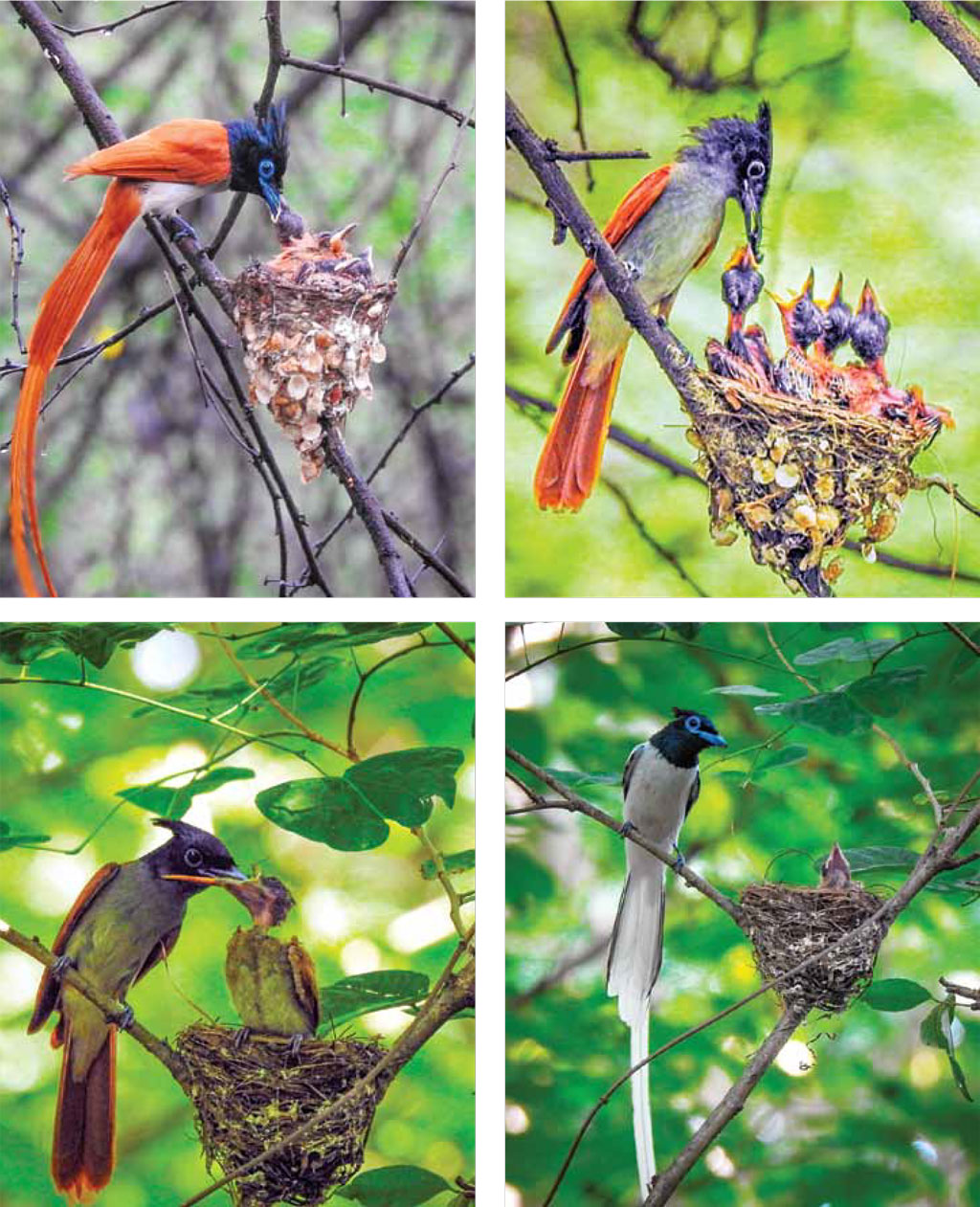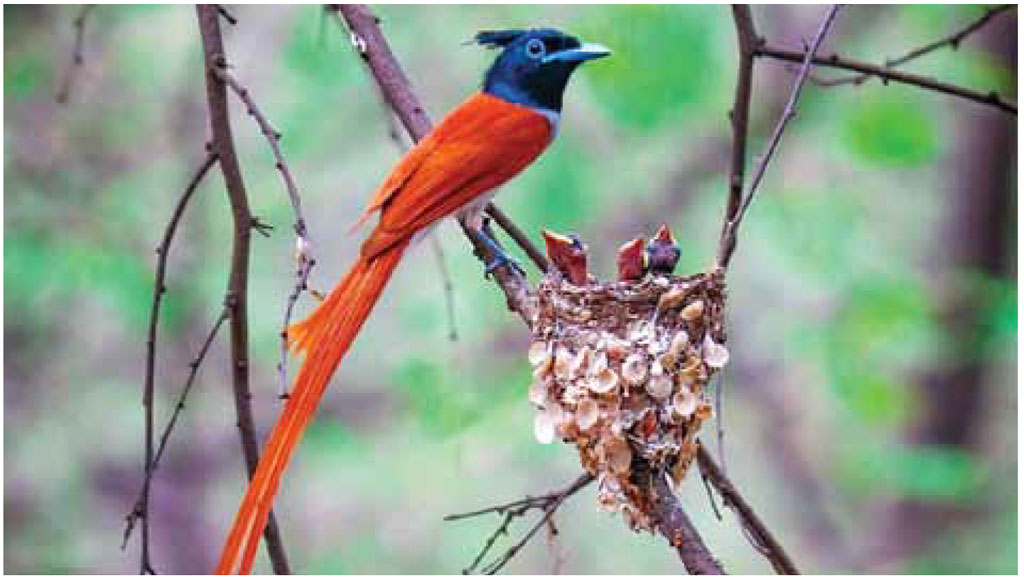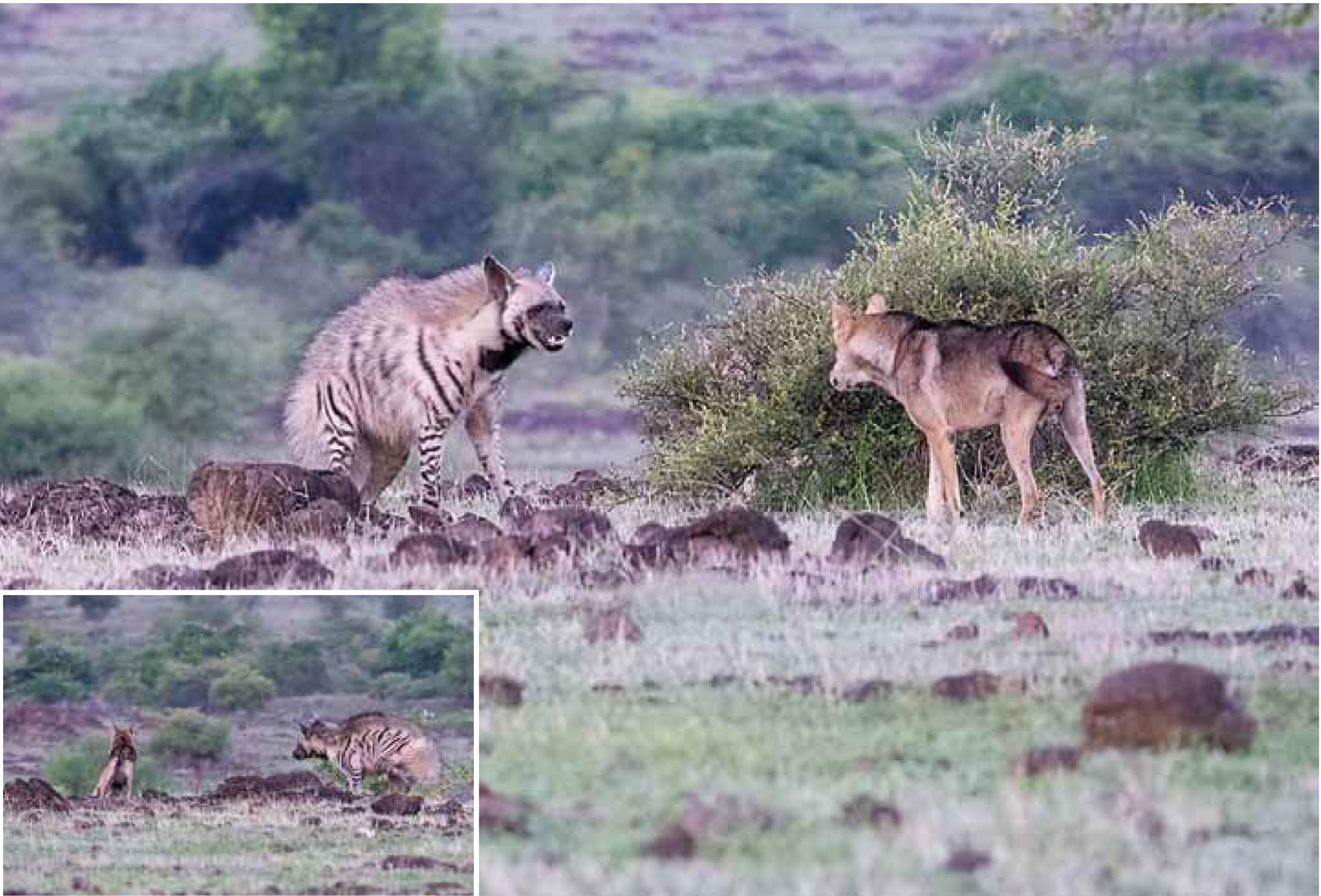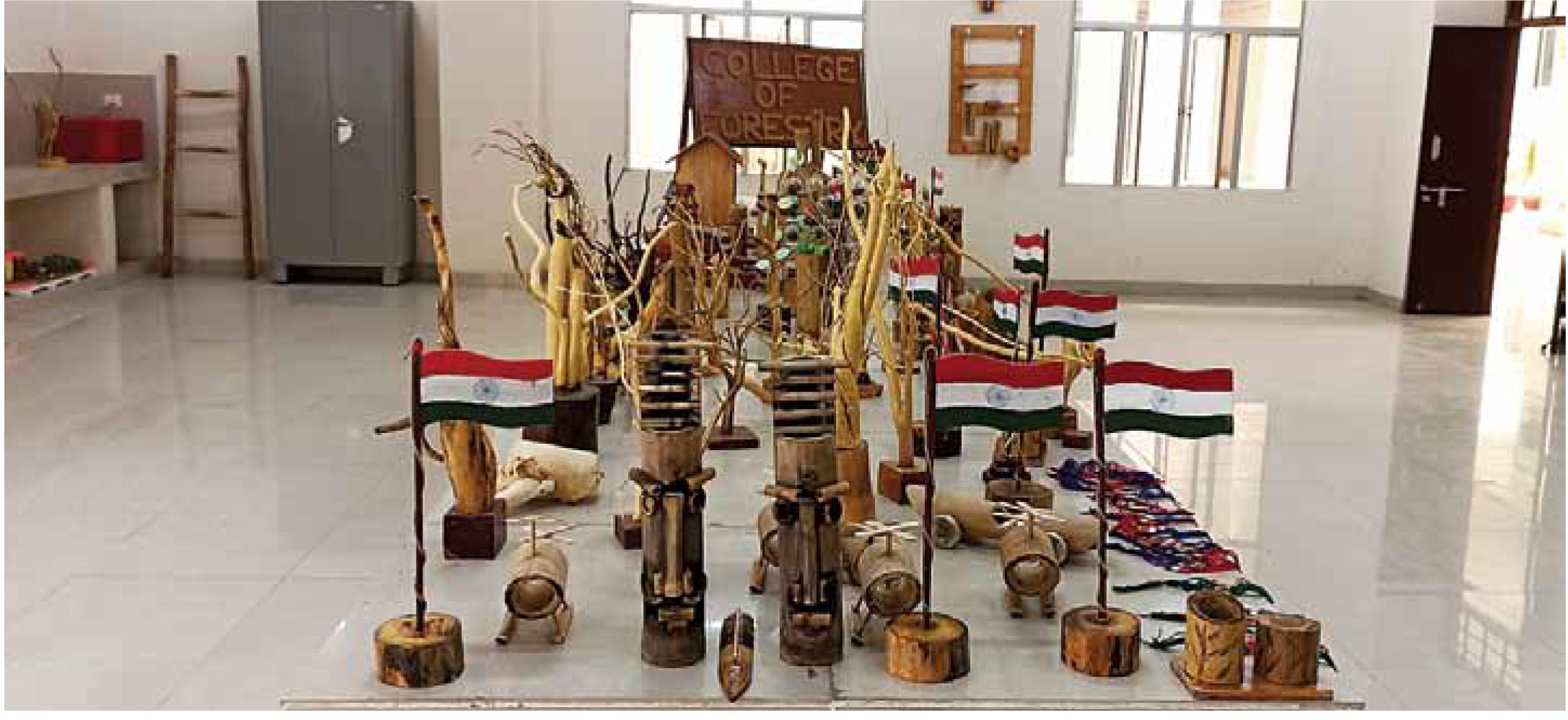Indian Paradise Flycatcher
By Manish Shukla

The Indian paradise flycatcher is a species of passerine bird that is native to the Indian subcontinent. It is known for its long tail and bright plumage, a beautiful and colourful bird. This is often described as “paradise-like”.

The Indian paradise flycatcher has been an important symbol for Madhya Pradesh for many years, inspiring people to appreciate and protect the environment around them. This majestic bird can be seen in many parts of India and its presence has been a source of joy for many.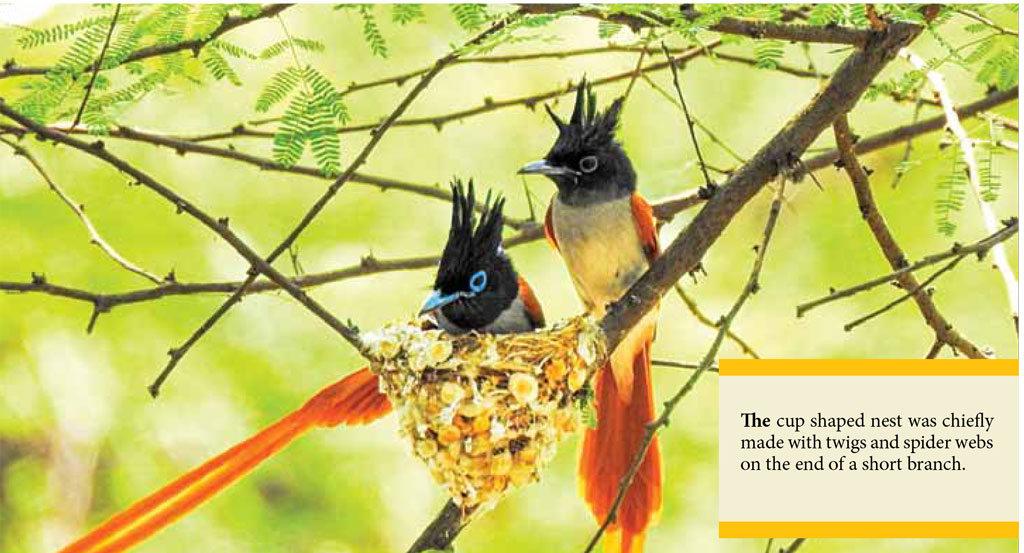
Indian paradise flycatcher is an elusive and beautiful bird species which can be found in moist deciduous forests, wooded habitats near rivers and streams, along the banks of rivers and often in evergreen forests. Their habitat ranges across India, Pakistan, Nepal, Myanmar and Sri Lanka.
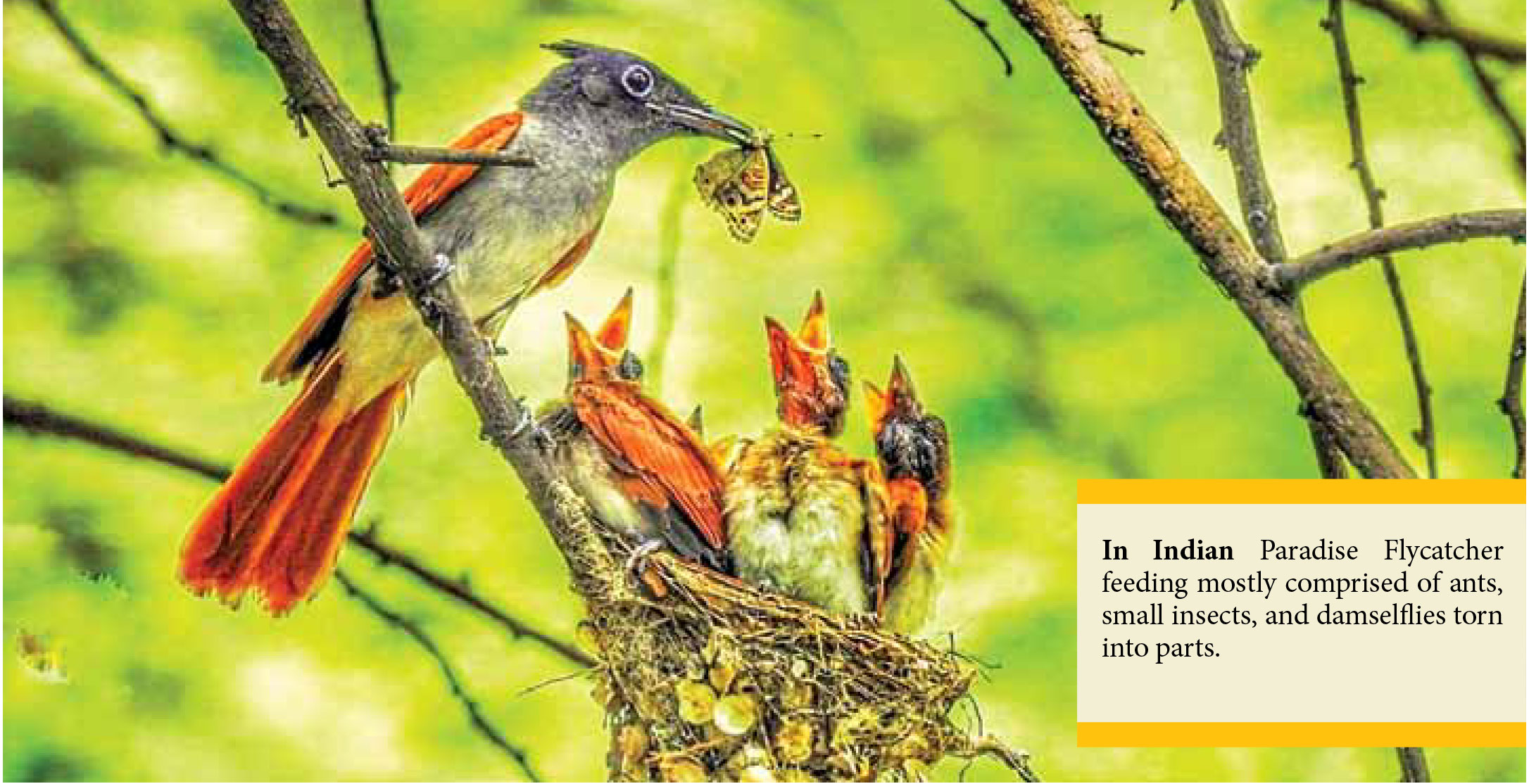
They are omnivorous and feeds on large insects such as dragonflies, butterflies and beetles, small mammals, fruits, and nectar. The Indian paradise flycatcher plays an important role in maintaining the balance of the local ecosystems by controlling insect populations.
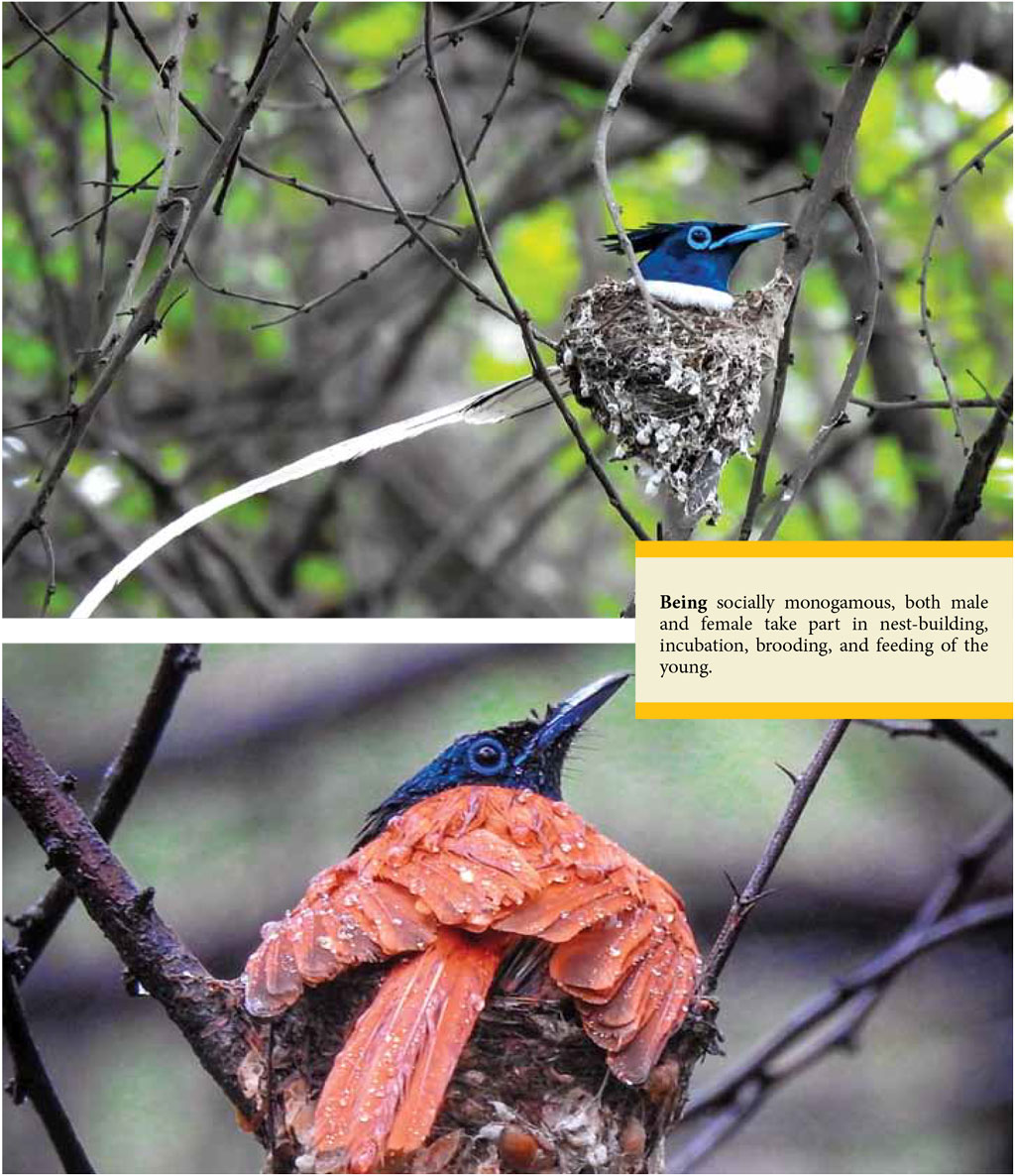
The life cycle of the Indian paradise flycatcher consists mostly of migration between its habitats; its life cycle consists of nesting in dry leaves during summer months (April and May) where incubation happens before hatching its eggs.
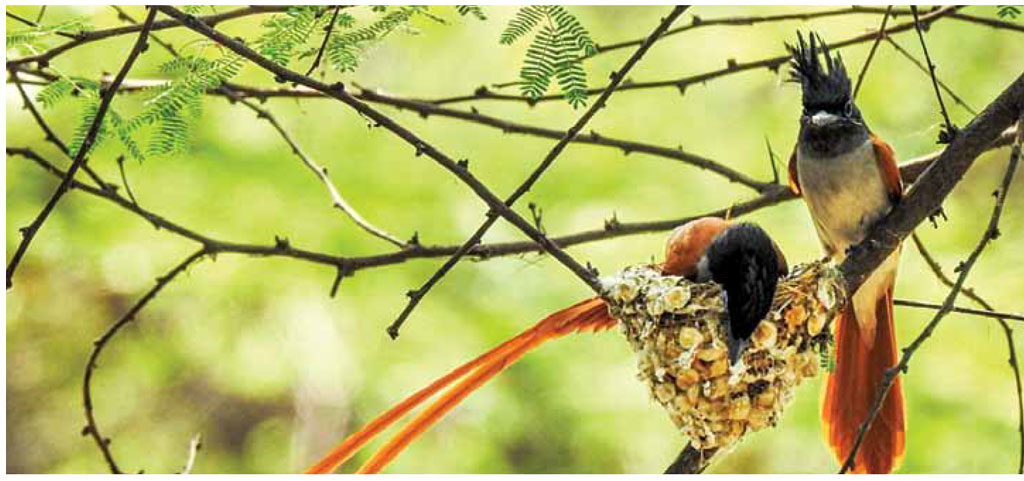

The female lays two to three eggs in the nest made up of sticks, grass and feathers,
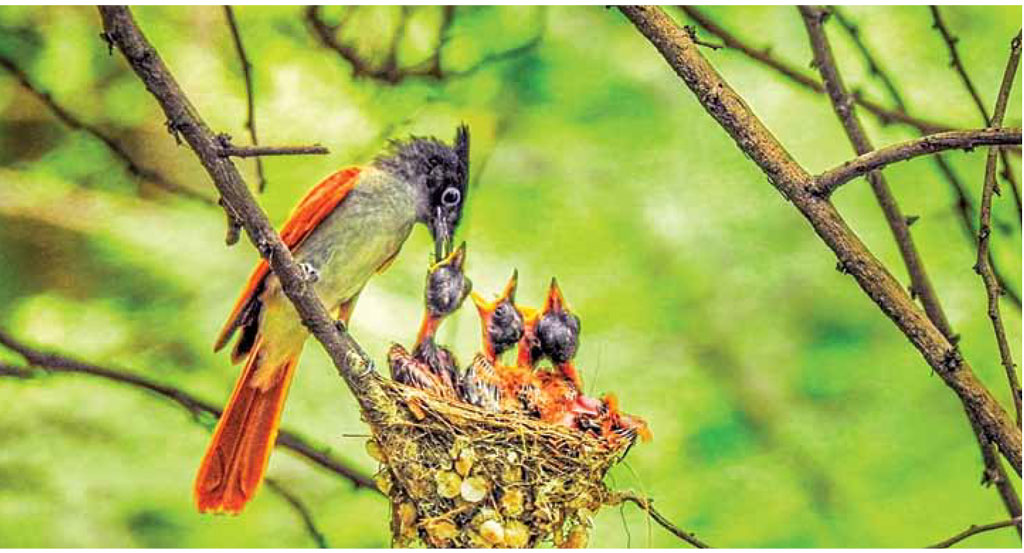
The chicks stay with their parents, the young birds fledge at 10-15 days of age, while they learn to scavenge for food until they are ready to thrive on their own when they are ready to leave the nest. Furthermore, they are characterized by an array of plumage patterns which also indicate their sex.

The paradise flycatcher is a species of bird that is known for its unique and effective parenting techniques. the extraordinary behaviors displayed by both parents birds that help ensure their offspring’s safety, as well as the strategies they employ to maximize food production and defend their nests from predators.
